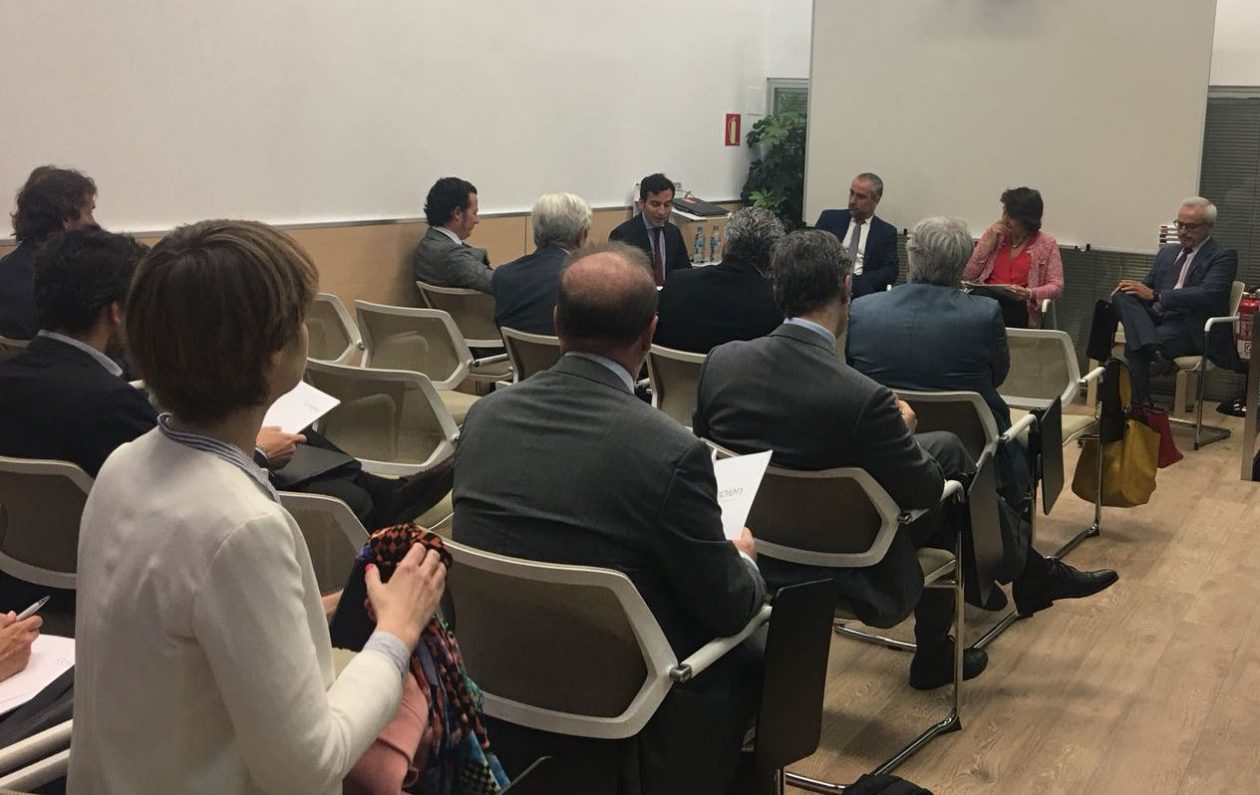Canary Islands-. The President of the Canary Islands Special Zone (ZEC), Jimena Delgado-Taramona, presented the tax benefits of this incentive under the Canary Islands Economic and Fiscal Regime (REF) today, Wednesday, 9 May, to forty company executives, tax advisers and entrepreneurs, who attended the conference where the round table, Restructuring, EPAs and the Canary Islands Special Zone (ZEC) were held at the University College of Financial Studies (CUNEF) in Madrid.
Among those attending the event were representatives of major Spanish multinationals and SMEs from various sectors such as renewable energy, food, technology and complete water cycle management. The debate, which was moderated by Ignacio Calatayud, PhD in Tax Law, member of the San Telmo partnership and head of the Tax Procedure Department, was also attended by the Director of the International Taxation Office of the State Tax Administration Agency (AEAT), Néstor Carmona, and the partner of the San Telmo Law Firm, Eduardo Sánchez, specialist in International Taxation and Transfer Pricing.
Delgado-Taramona stressed the benefits that the ZEC offers to companies, mainly the 4% Corporate Tax rate and the legal certainty it provides. In addition, she highlighted the strategic role of this REF incentive as a tool for economic diversification to attract leading companies capable of opening new business niches and generating highly qualified employment in emerging sectors. In this respect, she pointed out that the ZEC is an instrument that adds to the set of opportunities to project the Canary Islands as a geostrategic investment axis and a reference in the international fiscal context.
For his part, Eduardo Sánchez stressed the need to give substance to the reallocation of risks, assets and functions on which this type of restructuring of the value chain is based. Special attention should be paid to risks, as, in his opinion, the assumption of these risks must be accompanied by the capacity to control them, as well as the financial capacity to face them in the event that they materialise.
The intervening experts in Tax Law and International Taxation agreed that restructuring based on the redistribution of risks, assets and functions towards the ZEC would be a viable alternative from the fiscal and legal points of view in order to benefit from the tax advantages. They also considered the possibility of identifying the location of links in the business value chain and, in this way, benefit from the tax advantages that the Canary Islands offer within the framework of this special regime.
Source: Canary Islands Special Zone and San Telmo Lawyers and Economists

